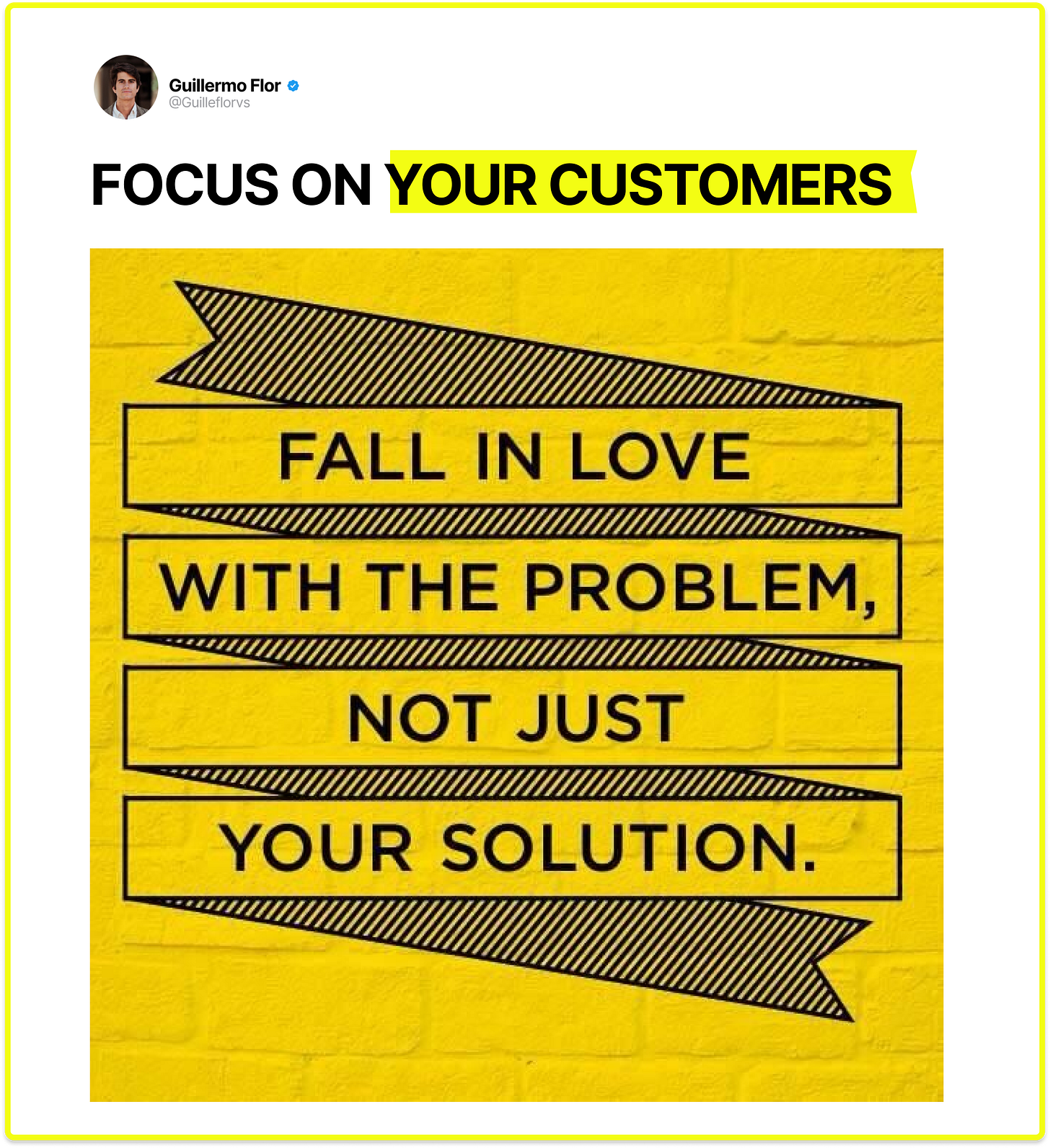Hey everybody welcome back to the Product Market Fit Newsletter 🚀
My name is Guillermo Flor and I write this weekly newsletter to help founders, growth professionals and product people to grow & fund their companies.
Now, this article is for everyone in the 0 to 1 step of building a startup. I’m going to cover:
Why not not to start a startup
How to start:
Find a problem
Use your compeitive advantage
Premium: Breaking down how the dropbox founders met, how they got their idea, first customers, growth strategy, and first investor
Design a business
Find a cofounder
Raise the first round
Why not not start a startup
Paul Graham’s essay addresses common fears and misconceptions about starting a startup and encourages aspiring founders to overcome these doubts. Drawing from Y Combinator’s experience, he provides insights into why more people should take the leap.
1. Too Young
Many people believe they are too young to start a company, but youth is often an advantage. What matters is maturity and how one handles challenges. Age is less important than having the mindset of an adult.
Mark Zuckerberg (Facebook)
Mark Zuckerberg was just 19 years old when he founded Facebook from his dorm room at Harvard. His youth didn’t stop him from building one of the world’s most successful tech companies
2. Too Inexperienced
Starting a startup is the best way to gain experience. While it’s often recommended to work for a few years first, building a startup teaches more valuable lessons, even if it results in failure.
Steve Jobs and Steve Wozniak (Apple)
Jobs and Wozniak had little business experience when they started Apple in their early 20s, working out of a garage. Their lack of experience didn’t stop them from revolutionizing personal computing
3. Not Determined Enough
Determination is the key to success in startups. Many founders start with doubts but grow more determined as they progress. What matters is a willingness to push forward, even in the face of uncertainty.
Elon Musk (SpaceX, Tesla)
Elon Musk faced numerous setbacks with SpaceX, including multiple failed rocket launches. However, his relentless determination allowed him to push through, eventually making SpaceX a leader in space exploration
4. Not Smart Enough
Startups don’t require extraordinary intelligence; hard work and effort matter more. Even if you doubt your smarts, if you can build something people want, you have what it takes.
Jan Koum (WhatsApp)
Koum, who grew up in Ukraine under tough conditions, didn’t have an elite education or background. Despite this, he co-founded WhatsApp, focusing on building a simple, user-friendly messaging app, which was later acquired by Facebook for $19 billion.
5. Know Nothing About Business
You don’t need to be a business expert to start a startup. The focus should be on building a great product, and the business model can evolve later. Investors care more about a product that people love than initial revenue.
Evan Williams (Twitter)
Evan Williams had little formal business training when he co-founded Twitter. His focus was on creating a product people loved, and despite the company's initial struggles with monetization, Twitter became a cultural phenomenon.
6. No Cofounder
Lack of a cofounder is a serious issue. A startup is too much for one person to handle alone, and investors are more likely to fund teams. If you don’t have a cofounder, find one before starting your venture.
7. No Idea
Ideas evolve. Many startups pivot from their original concept. What matters is not the initial idea, but the ability to execute and iterate based on feedback. Sometimes it’s better to start without a fixed idea and adapt along the way.
Brian Chesky and Joe Gebbia (Airbnb)
Airbnb didn’t start with the grand idea it is today. Chesky and Gebbia initially rented out air mattresses in their apartment to make rent. Their idea evolved as they realized the potential for creating a platform for people to rent out spaces around the world.
8. No Room for More Startups
There’s no limit to the number of startups that can exist. Even though big companies acquire many startups, new needs and opportunities continuously arise, leaving plenty of room for more innovation.
Reed Hastings (Netflix)
When Netflix started, Blockbuster dominated the movie rental industry. Many thought there was no room for another player. However, Netflix revolutionized the industry by shifting from physical rentals to streaming, proving there’s always room for innovation.
9. Family to Support
Starting a startup with a family is a higher risk, but there are ways to mitigate it, like starting a consulting business or joining an existing startup. However, the best time to take risks is when you’re young and unencumbered.
Phil Knight (Nike)
Phil Knight started Nike as a side project while working full-time as an accountant. He had a family to support, and his path to success took years, but by gradually building the business, he created one of the world’s largest athletic brands.
10. Independently Wealthy
If you’re already wealthy, you may not need the stress of starting a company. Many who are rich prefer to focus on projects they find interesting rather than endure the demands of startup life. However, the intellectual challenge can still drive some to start new ventures.
Peter Thiel (PayPal, Palantir)
Peter Thiel made a fortune as one of PayPal’s founders but didn’t stop there. Despite being wealthy enough to retire, he went on to co-found Palantir and has remained an influential figure in the tech world through investments and mentorship (such as his involvement in Y Combinator).
11. Not Ready for Commitment
Startups demand a long-term commitment, often consuming three to four years of your life. If you’re not ready to commit, it might not be the right time to start. But realize that traditional jobs also require significant time, often without the same level of fulfillment.
Kevin Systrom (Instagram)
Kevin Systrom initially worked at Google, enjoying his job security. However, once he committed to Instagram, his work consumed his life, leading to rapid success and an eventual acquisition by Facebook for $1 billion.
12. Need for Structure
Some people need structure and guidance, which is not typically available in startups. If you thrive on independence and self-direction, you’re more likely to succeed in a startup environment.
Larry Page and Sergey Brin (Google)
Larry Page and Sergey Brin thrived on independence and self-direction when they started Google. They didn’t need a structured corporate environment, instead fostering a culture of innovation that allowed Google to flourish with minimal top-down direction.
13. Fear of Uncertainty
If uncertainty scares you, then know this: most startups fail. However, even in failure, startups offer valuable experiences that employers and investors appreciate. Taking the leap is more about learning and growth than guaranteed success.
Jeff Bezos (Amazon)
When Jeff Bezos left a stable job at a hedge fund to start Amazon, it was a huge risk. Online retail was an unproven market, and he had no guarantees. But Bezos embraced the uncertainty, and Amazon became the world’s largest online retailer.
14. Don’t Realize What You’re Avoiding
The reality of corporate jobs can be dull and restrictive. While startups offer challenges, they also provide freedom and flexibility. The pain of returning to a regular job after a startup often motivates founders to try again.
Stewart Butterfield (Slack)
Stewart Butterfield co-founded Flickr and later founded Slack. After experiencing the pain points of working in traditional jobs and on failed startup ideas, Butterfield realized that building tools to improve communication (Slack) would solve a major workplace frustration.
15. Parents Want You to Be a Doctor
Parents may discourage risky career choices, favoring traditional paths like medicine. However, their advice is often based on outdated views. A safer career doesn’t always bring more happiness or success in today’s evolving world.
Larry Page (Google)
Larry Page’s parents were both professors of computer science, encouraging him to pursue academics. However, Page followed his passion for entrepreneurship, co-founding Google, which became a monumental success.
16. I Don’t Have Any Money
Reality: Lack of initial funding is a common concern for many aspiring founders, but it shouldn't stop you from starting a startup. Many successful companies started with very little capital.
Why It’s Not a Showstopper: You don’t need a lot of money to begin. In fact, starting lean can force you to focus on building something valuable before investing heavily. Many startups begin with minimal resources, relying on sweat equity, bootstrapping, and the help of early-stage accelerators.
Examples of Overcoming This:
Airbnb: The founders initially sold cereal boxes to raise money and keep the company afloat before receiving any venture funding.
Dropbox: Drew Houston started Dropbox with a simple prototype and no co-founder, using his technical skills to get enough traction to attract investors.
How to Approach It: Focus on building a minimum viable product (MVP) that can demonstrate value without requiring much capital. In today’s world, tools and platforms are available that make launching a startup cheaper than ever before. Additionally, accelerators like Y Combinator are specifically designed to help founders who may not have capital by providing seed funding, mentorship, and a network of investors.
Don’t quit your job until you are entirely sure what you want to build is viable and has value and try to have saved at least 12 months of money to support yourself in case you can’t fundraise.
Why building a startup is worth it:
Risks:
- Not making money for 1 or 2 years
- Losing other career opportunities (where typically you could make some money, but not really a lot)
- Not being able to succeed and having to close the startup after a couple of years
Potential rewards:
- Having a 6 figure exit (the average startup exit value in 2023 was at €23m)
- Developing unique high value skills and becoming an industry thought leader
- Advancing years in your career
- Chaging the world
The risks are really low compared to the potential upside. Even having failed, having built a startup could put you in a better situation than if you had followed a traditional career path.
How to find your business idea
1. Find a problem
Start with your why
I see many entrepreneurs going from idea to idea all the time.
Not having the patience to dedicate time long enough for the company to grow and compound
This is because the reason why they started is not alligned with what they are doing.
The way to avoid it is to focus on the why👇
Now, once you found the problem you want to solve and from whom you have to set it as your north star. Many successful entrepreneurs have talked about this.
Typically it’s called: fall in love with the problem, not the solution
Find your competitive advantage
1. Find out what outstanding soft skills you have
As a founder you should ask yourself (and know your team as well)
What am I really good at?
What do I really love doing?
what do people ask me for help for?
What’s my mission?
2. Figure out what you know more about than anyone
You should ask yourself and your team:
What industry’s know how do we have?
What can I do better than most people?
What do we know better than most professionals?
Maybe you can develop AI products because you’ve been doing it for 5 years, or maybe you know so much about a particular industry. That’s your competitive advantage. Make sure you use it.
3. Exploit your resources as much as possible
🚨🚨 The other day I was talking to an entrepreneur building a SaaS for personal trainers.
He had previously amassed a huge following on instagram with his exercise content.
When I asked him if he was using that channel to get customers he told me that he wasn’t because he didn’t want to influence the buying process. For me that is a huge mistake. Your competitive advantage is what allows you to grow your startup. Whenever you have one. Use it!
So, as resources you can have:
Connections: connections are everything. If you know your potential clients personally it will be easier to sell your product to them. If you know many investors personally it will be easier to fundraise, etc, etc. Network as much as possible and make sure you use the connections later.
Personal brand: A good personal brand is just another distribution channel for your product, if you have it. Use it!
Money: well, of course it’s a great competitive advantage if you have it!
Part 2 next week! Stay tuned and share this with other entrepreneurs!






















